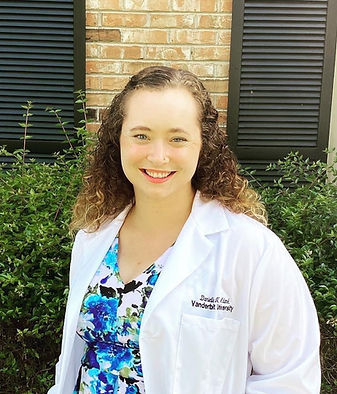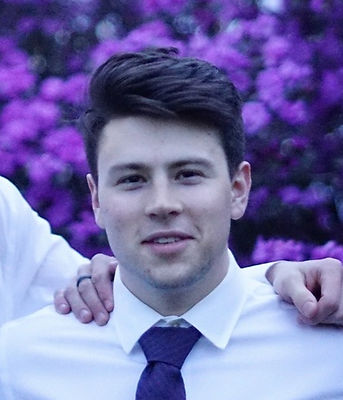Lab Members

Danny Winder, PhD
Principle Investigator
Dr. Winder received his B.S. from North Georgia College, and his Ph.D. in Neuroscience from Emory University in 1995. After completing a postdoctoral fellowship with Nobel Laureate Eric Kandel, M.D., at Columbia University College of Physicians & Surgeons, he joined the Vanderbilt faculty in 1999 as assistant professor of Molecular Physiology & Biophysics. He was promoted to full professor in 2010. A neuroscientist focused on stress and addiction, Dr. Winder has been particularly interested in determining mechanisms that modulate synaptic plasticity, and how and when these processes are disrupted by stress and during Alcohol/Substance Use Disorder. In 2013, Dr. Winder received a NARSAD Distinguished Investigator Award and in 2016 a MERIT Award from NIAAA. In 2017, he was awarded the F. Peter Guengerich award in the School of Medicine for postdoctoral mentoring, as well as the Bixler-Johnson-Mayes Endowed Chair. He is founding director of the Vanderbilt Center for Addiction Research, which was established in 2016 to define events that drive addictive behavior and develop new treatments to sustain recovery. In 2023, he became chair of the department of Neurobiology, and Worcester Foundation of Biomedical Research professor at UMass Chan medical school. In 2024 he became director of the newly funded NIAAA P60 Vanderbilt AUD Research and Education Center, a new model of NIH-funded research and education center working across campuses. At the national level, he has served as an associate editor of The Journal of Neuroscience, section editor of Neuropharmacology, on the editorial board of Molecular Pharmacology, and is a member of the Board of Scientific Counselors for NIAAA, along with multiple centers and consortia.

Regina Whitehead
Lab Manager
Regina has been with the Winder lab since its UMass inception in 2023. She got her first research job in 1991 doing Maxam-Gilbert sequencing with the Harvard Genome lab. Her subsequent labs included, among other things, AIDS research, rAAV vector production, and a 23 year partnership with Leslie Berg's T cell signaling group. Somewhere along the way, she realized that the fun parts of the job were more about the people than the experiments and that is when she truly found her groove supporting her scientist teammates.

Hannah Masters
Research Associate
Hannah joined the Winder lab in the spring of 2024 after moving with the lab from Tennessee to Massachusetts, where she now assists in the experimentation and prototyping of new LIQ systems. She graduated from Tennessee Technological University with a B.S. in Biology and has since taken multiple research focused positions, focusing mostly on fungal and microbiological pathogens in plant and animal agriculture. She found her focus in neurobiology in the Winder lab with ambitions of furthering her education and attending graduate school in the future. In her spare time, Hannah enjoys crafting, reading, and building Ikea furniture.

Sabrina Hallal, MS
Bioinformatician
Sabrina graduated from Clark University in 2021 with a B.S. in Biology, concentrating in Mathematical Biology and Bioinformatics. From there, she went on to the University of Texas at Dallas, where she earned her Master's in Applied Cognition and Neuroscience in 2023. It was at both universities that Sabrina discovered her love for mathematics, computer science, and neuroscience, and more specifically the intersection of the three. This led her to the Winder Lab, where she joined as a Bioinformatician in 2024. As part of her role, Sabrina focuses on data analysis. Outside of the lab, Sabrina enjoys reading, watching movies, and photography.

Marie Doyle, PhD
Post-Doctoral Fellow
Marie received her Ph.D. in 2020 from Michigan State University, where she was a graduate student in the Neuroscience Program. She completed her doctoral training in the lab of Dr. Michelle Mazei-Robison, focusing on cocaine- and morphine-induced neuroadaptations in the ventral tegmental area. Specifically, she used a combination of transgenic mouse models and viral-mediated approaches to determine the role of SGK1 catalytic activity and phosphorylation in regulating drug reward and intake. Marie joined the Winder Lab as a postdoc in September of 2020, where her research interests focus on characterizing alcohol-induced plasticity in the BNST and how these changes contribute to maladaptive behaviors. This work is centered in individual differences in ethanol drinking behaviors, integrating in vivo and ex vivo calcium imaging, ex vivo slice electrophysiology, operant behavior, and the development of open source tools. Outside of lab, Marie enjoys cooking, exercising, and reading science fiction books.

Caitlyn Edwards, PhD
Post-Doctoral Fellow
Caitlyn earned her PhD in Neuroscience from Florida State University working with Dr. Linda Rinaman. Her dissertation examined how visceral signaling contributes to negative affect. Her current work as a postdoctoral fellow investigates the neural mechanisms underlying negative affect during ethanol abstinence. She is particularly interested in how visceral signaling and prolactin releasing peptide (PrRP)-expressing neurons—and their projections to the bed nucleus of the stria terminalis (BNST)—contribute to affective states. Additionally, her research leverages whole-brain immunolabeling and light sheet microscopy to explore brain-wide changes during ethanol abstinence in an unbiased manner. Outside the lab, Caitlyn enjoys hiking, camping, crocheting, and getting lost in a good book.

Danielle Adank, MS
Graduate Student
In 2014, Danielle graduated with a B.S./M.S. in pharmacology from the University at Buffalo, where her thesis focused on examining how withdrawal time and negative consequences impact cocaine reinstatement behaviors in rats. After, she moved onto the University of Minnesota as a researcher under Dr. Carrie Haskell-Luevano where she researched how melanocortin receptors influence metabolic diseases and diabetic neuropathic pain. She is currently in the Neuroscience Graduate Program at Vanderbilt, interested in studying the microcircuitry underlying substance use disorder and related psychiatric diseases. Outside of the lab, she enjoys reading, running, volunteering, and increasing the visibility of diversity in STEM fields on social media. IG: @femme_in_stem Bluesky: femmeinstem X: @femmein_stem

Samuel Bond
Graduate Student
Sam received a B.A. in Biology from Skidmore College. As an undergrad, he studied environmental and cellular regulators of sleep in Drosophila under the guidance of Dr. Christopher Vecsey at Skidmore and Dr. Patrick Emery at UMass Chan. Sam returned to UMass Chan for his PhD, and his thesis project focuses on how acute and chronic ethanol modulate sleep behavior, with an emphasis on the role of wake-promoting dopaminergic neurons in the midbrain periaqueductal gray. In his free time, he enjoys spending time with his two cats, playing (or watching) basketball, and going out to restaurants/bars in the Worcester area.
_edited.jpg)
Alex D'Amico
Graduate Student
Alex is a graduate student in the UMass Chan MD-PhD program, with an interest in treating and studying neuropsychiatric disorders including substance use disorders and neurodegenerative disorders. He was born in New York City and grew up primarily in Vermont, wrestling and playing football in high school. After graduating from UVM, Alex spent two years at NIH working for Dr. Francis McMahon on genetic risk factors for bipolar disorder. He now lives in northern Worcester with his fiancée and other students. Alex's hobbies include lifting, cooking, and language learning. His work in the lab focuses on linking the affective circuitry that our group has helped characterize, including the BNST, to behavior-related circuitry, starting with the striatum.

Hanbo Zhang, MS
Graduate Student
Hanbo graduated from Peking University Health Science Center (BS, Pharmacy, 2018-2022) and the University of Michigan -- Ann Arbor (MS, Pharmacology, 2022-2023). Afterwards, she worked as a lab technician at UMich for one year (2023-2024) before beginning her PhD studies. Hanbo's current project focuses on characterizing the neuronal subtypes in the primary motor cortex that project to the insular cortex and their potential role in modulating the alcohol drinking behavior. She is a fan of all kinds of rodents (squirrels, rats, mice, hamsters, etc)!
